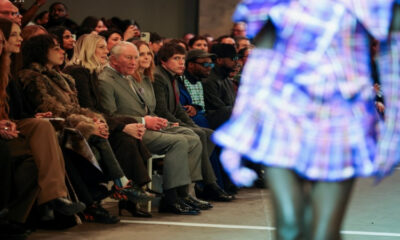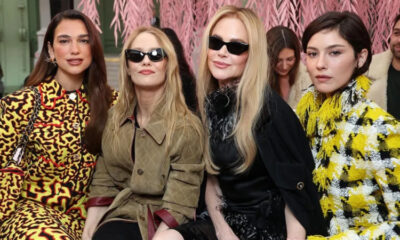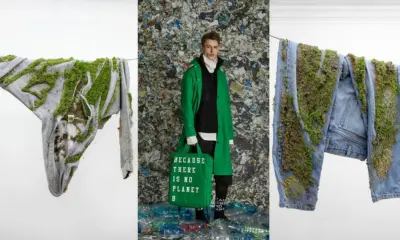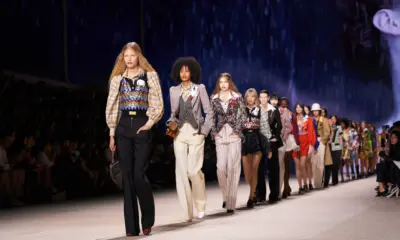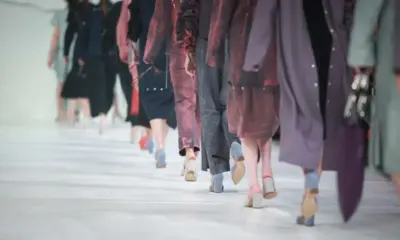Fashion
London Fashion Week 2025: Sustainability as the New Luxury

London Fashion Week 2025 has emerged as a landmark event showcasing a profound shift in the fashion industry, with sustainability taking center stage. Analysts from the British Fashion Council (BFC), Reuters, and Vogue UK note that designers, brands, and buyers are increasingly prioritizing environmentally responsible materials, ethical production methods, and circular economy principles. Sustainability is no longer a niche trend but a defining attribute of modern luxury, reflecting both consumer demand and regulatory pressures.
Sustainable Materials and Innovation
Designers are integrating recycled fabrics, biodegradable textiles, and innovative materials such as lab-grown leather and plant-based synthetics. Analysts highlight that these materials not only reduce environmental impact but also elevate the narrative of exclusivity, positioning eco-conscious fashion as a mark of sophistication and status. Brands presenting collections during London Fashion Week 2025 emphasized traceability, ensuring that every garment has a verifiable environmental footprint.
The focus on innovation extends to digital fashion as well. Virtual garments, augmented reality (AR) shows, and NFT-based fashion collections are reducing waste associated with physical production, enabling sustainable storytelling while maintaining high-end appeal. Analysts suggest that these approaches allow brands to engage global audiences while demonstrating a commitment to sustainable practices.
Circular Fashion and Ethical Production
The 2025 shows highlighted circular fashion initiatives, including garment recycling, upcycling, and buy-back programs. Luxury brands are increasingly collaborating with textile recycling companies to ensure that post-consumer garments are reintegrated into new collections. Analysts from the BFC report that circular initiatives enhance brand credibility and appeal to younger, environmentally conscious consumers who prioritize ethical consumption.
Ethical production, including fair labor practices, supply chain transparency, and local sourcing, was also a central theme. Designers emphasized that luxury need not compromise social responsibility, positioning ethical production as an integral part of high-end fashion identity.
Digital Transformation and Hybrid Shows
London Fashion Week 2025 embraced hybrid presentation models, combining physical runway events with live streaming and virtual reality experiences. Analysts note that these hybrid formats expand global access, allowing international buyers, journalists, and fashion enthusiasts to participate without the environmental cost of travel. Streaming metrics indicate that hybrid shows increased digital engagement by 25 percent compared to previous editions, highlighting the effectiveness of integrating technology with sustainability objectives.
Social media platforms amplified the reach of eco-focused collections, with interactive campaigns encouraging audience participation and education on sustainable fashion practices. Analysts suggest that this digital integration is vital for shaping consumer perception, promoting transparency, and increasing global visibility of sustainable luxury brands.
Economic Implications for the Fashion Industry
Sustainability is increasingly tied to profitability in 2025. Analysts from Bloomberg and Reuters report that sustainable luxury products command higher margins, driven by consumer willingness to pay a premium for environmental responsibility. Brands integrating sustainability into design, production, and marketing are seeing measurable increases in both sales and brand loyalty.
Investment in sustainable fashion startups has surged, with venture capital and private equity funds targeting innovators in circular textiles, eco-friendly dyes, and digital fashion platforms. Analysts highlight that London’s position as a global fashion hub is strengthened by its emphasis on sustainability, attracting both domestic and international investment.
Global Influence and Regulatory Alignment
London Fashion Week 2025 also reflects alignment with global sustainability frameworks, including EU textile regulations, UK environmental standards, and international ESG guidelines. Analysts note that regulatory compliance enhances brand reputation, mitigates operational risk, and ensures access to international markets. Brands actively showcasing compliance with these standards signal both corporate responsibility and market credibility.
The global influence of London designers extends to partnerships with international brands, cross-border supply chain initiatives, and sustainable collaborations, reinforcing the UK’s leadership role in eco-conscious fashion. Analysts suggest that this influence positions London as a benchmark for other fashion capitals, including Paris, Milan, and New York.
Consumer Behavior and Market Trends
Consumer preferences are increasingly shaping industry practices. Millennials and Gen-Z buyers are demanding transparency, ethical sourcing, and environmental accountability, influencing both design choices and purchasing behavior. Analysts report that eco-conscious consumers are willing to invest in higher-quality, sustainable garments, reflecting a shift from fast fashion to long-term, durable consumption.
Interactive campaigns, traceable product labeling, and digital storytelling enhance consumer confidence, enabling brands to communicate the tangible benefits of sustainability initiatives. Analysts note that this trend not only impacts sales but also shapes brand identity and cultural perception, creating a long-term competitive advantage for eco-conscious luxury brands.
Challenges and Strategic Considerations
Despite progress, challenges remain. Sustainable materials can be costlier, supply chains require restructuring, and consumer education is ongoing. Analysts highlight that brands must balance innovation, profitability, and authenticity to maintain credibility. Effective marketing, transparent reporting, and investment in sustainable technology are essential for overcoming these hurdles.
The transition also requires workforce training, digital integration, and collaboration with suppliers and partners. Analysts emphasize that the fashion industry’s ability to scale sustainable practices without compromising quality or brand appeal will define success in the coming years.
Future Outlook: Luxury Defined by Sustainability
Looking ahead, analysts predict that sustainability will become a standard feature of luxury fashion, rather than a differentiating factor. London Fashion Week is expected to continue leading the global agenda, promoting eco-conscious practices, technological innovation, and ethical production. Brands investing in circular design, digital transformation, and supply chain transparency are likely to capture long-term market share and brand loyalty.
The convergence of luxury, technology, and sustainability positions London as a global model, demonstrating that environmental responsibility can coexist with creativity, profitability, and cultural relevance.
Conclusion
London Fashion Week 2025 illustrates that sustainability is no longer optional—it is the new luxury. Designers, brands, and investors are embracing eco-conscious practices, digital innovation, and ethical production to meet the expectations of a global, environmentally aware audience. Analysts agree that the UK’s leadership in sustainable fashion not only enhances economic prospects but also reinforces cultural influence, ensuring that London remains a benchmark for creative excellence, responsible innovation, and global fashion leadership.

